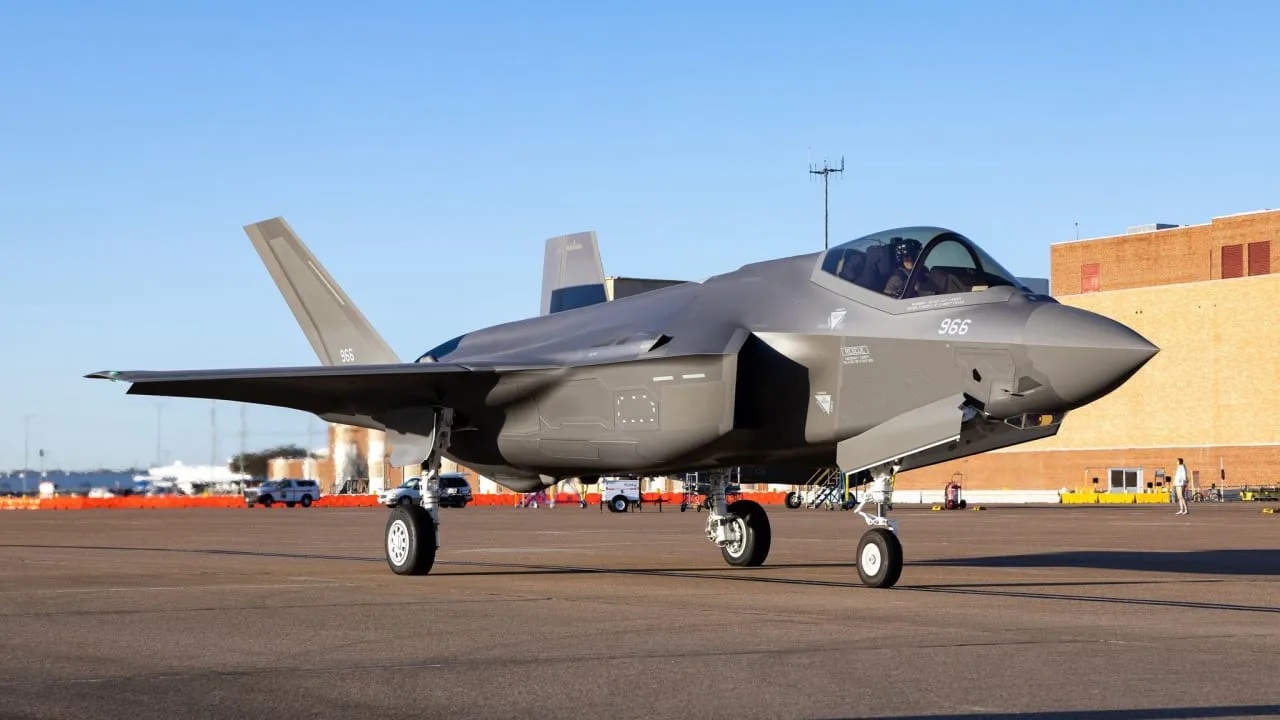In a closely watched legal battle with global implications, London’s High Court on Monday, June 31, 2025, ruled that the UK government acted lawfully in continuing to permit the export of F-35 fighter jet components to Israel, even though ministers acknowledged the possibility that these parts could be used in breach of international humanitarian law (IHL) during Israel’s military operations in Gaza.
The decision ends a 20-month legal effort by the Global Legal Action Network (GLAN), Al-Haq.
It also supported by prominent organizations including Amnesty International, Human Rights Watch, and Oxfam, to halt all UK arms sales to Israel.
Their primary contention focused on the UK’s participation in a global F-35 parts supply chain.
This supposedly includes components that Israel can access through its involvement in the U.S.-led fighter jet programme.
The case culminated in a 72-page judgment delivered by Lord Justice Males and Mrs Justice Steyn.
The judges found that such matters involve complex and sensitive political questions that lie within the remit of government ministers and Parliament, not the judiciary.
According to the ruling, the specific legal question centered on whether courts could compel the UK to withdraw from a multilateral defense collaboration deemed essential to national security and international peace.
This is simply because some UK-manufactured parts might eventually be used by Israel in ways that contravene IHL.
The court concluded it could not interfere in decisions fundamentally political in nature.
“This acutely sensitive issue,” the ruling stated, “is for the executive, which is democratically accountable to Parliament and ultimately to the electorate, not for the courts.”
UK ministers had argued that halting the export of F-35 components would jeopardize the entire programme, potentially impacting NATO security and undermining the UK’s defense partnerships.
The judges appeared to accept that the UK could not feasibly impose conditions on Lockheed Martin, the main supplier, to prevent parts from reaching Israel.
Though Ministry of Defence documents acknowledged that more could be done to trace the supply chain, the court did not consider this failure sufficient grounds to intervene.
The UK is the second largest supplier of F-35 components after the United States, contributing approximately 16.2% of all subcontracts with British firms.
The British firms include BAE Systems, Martin-Baker Aircraft Company, and GE Aviation Systems playing significant roles.
BAE Systems alone has secured over $5.7 billion in F-35-related contracts.
Although the Labour government recently revoked 30 arms export licences to Israel in September 2024, the court case zeroed in solely on the F-35 carve-out.
It was supposedly a measure exempting these specific exports from broader restrictions.
The legal challenge spotlighted deeper questions about the integrity and effectiveness of the UK’s arms control regime.
Of particular concern were the criteria used by the government to assess the risk of arms being used in serious breaches of IHL.
Government lawyers disclosed that as of September 2024, despite the reported killing of 40,000 Palestinians and extensive aerial bombardments by Israel, the UK had examined only 413 individual incidents.
Of these, only one, that is, the World Central Kitchen attack that killed seven aid workers, was flagged as a potential violation.
None of the thousands of incidents involving only Palestinian casualties were found to meet the UK’s threshold for IHL breaches.
These reportedly raised concerns from Al-Haq and other human rights groups about the government’s narrow evidentiary standards.
Critics argued that the UK’s assessments overlooked broader patterns of conduct in Gaza.
They say it focuses instead on isolated incidents and possible justifications, thereby downplaying systemic violations.
The court accepted that the government had balanced its support for international peace and security against the potential for arms misuse, as required by UK export laws.
However, the case has sparked renewed scrutiny over whether such legal thresholds are too high to meaningfully prevent complicity in international law violations.
Analysts say the ruling may provide short-term relief to government ministers and the UK defense industry.
On the other hand, it leaves unresolved ethical and humanitarian questions about the UK’s role in global arms trading.
This is particularly in regions plagued by enduring conflict and allegations of human rights abuses.







